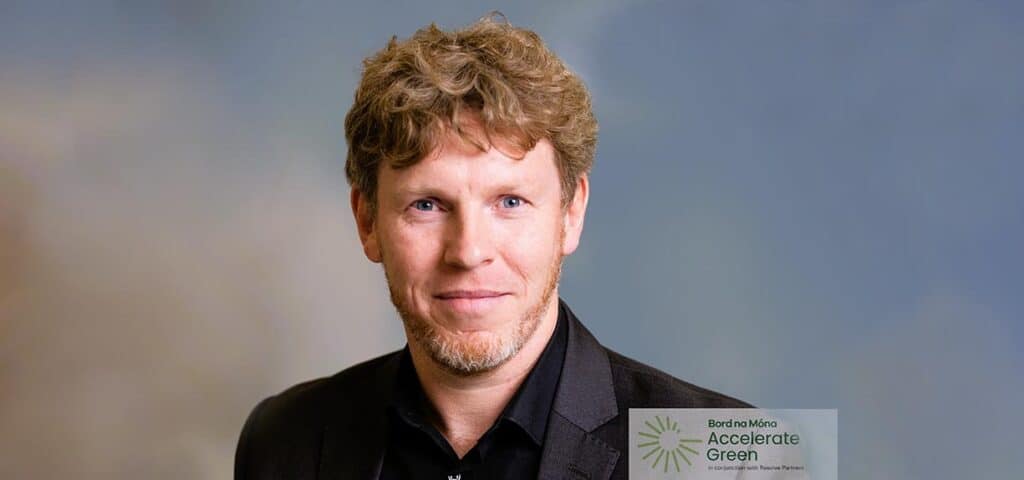Pictured: Mike Keane, founder, Hibra Design
Mike Keane is founder of Hibra Design, specialising in unique bespoke vehicle solutions.
What inspired you to start your company?
I have spent over 20 years working in automotive engineering for vehicle companies. I have been fortunate to have worked on or led the development of a number of exciting and innovative vehicle programmes, such as Ford’s ground-breaking 1.0l Ecoboost engine, the Jaguar C-X75 supercar, and the Nissan Bladeglider electric sports car.
I am a core believer in engineering efficiency, and it was always important to me that the vehicle programmes had to have an environmental benefit. However, I was also always conscious that producing more road cars, especially high-value, low-volume cars, irrespective of whether they had clean powertrain-technology or not, was simply adding to the environmental problem – rather than solving it.
On top of that, I could see that the heavy industrial vehicles that were the most detrimental to the environment, did not have the same focus on clean technology development as was seen in the road cars. As a result, I founded Hibra Design to service this under-tackled problem, by decarbonising industrial vehicles.
What is your core product/service offering and what gap in the market are you trying to address?
Hibra Design is the first and only Irish automotive design engineering company, focussed on decarbonising industrial vehicles by engineering Battery Electric and Hydrogen Fuel Cell solutions. Hibra Design is developing a suite of modular, scalable, powertrain technologies that are compatible with a wide range of vehicles.
Our key USP is that our solution is operation-specific and vehicle-agnostic. In contrast to diesel-powered vehicles, zero-emission solutions must be engineered and configured for the specific operation, not for the vehicle. We launch our pilot programme in 2023, and are working with industrial partners who wish to take definitive action to move their operation towards a clean and sustainable output.
Our pilot programme allows our powertrain technology to be configured for the specific operational needs of our partners and we will be deploying a prototype vehicle in conjunction with partners.
Is there a particular sustainability related issue that your business is trying to solve?
In Ireland alone, there are over 6,500 vehicles operating across different industry verticals such as quarrying and mining, ground handling, and power generation. These vehicles are highly suitable for engineering with clean powertrain technologies, such as battery electric, because of their operational duty cycles. However, few clean technology alternatives exist from the vehicle manufacturers. There is no regulatory mandate for industrial vehicles to be developed with clean technology.
Therefore, operators are caught between exponentially rising fuel costs and ever-increasing levels of environmental legislation.
As a result, most organisations are developing clear ESG targets. The Hibra Design System solution offers industrial operators a zero-emission alternative for their vehicles. This allows industrial companies to reduce operational costs, the fuel bill is reduced by over 50%, the maintenance bill is reduced by over 75%, and environmental legislative costs are eliminated entirely. Alongside this, the solutions produce healthier working environments and increase production efficiency.
What motivated you to apply to the Accelerate Green programme?
There are a number of accelerator programmes in the start-up ecosystem in Ireland. However, Accelerate Green was the only programme with a specific, sustainability focus. This was important to me as I believe that sustainability is increasingly becoming a core value for companies, not just an add-on. An accelerator programme that understood this and was able to work with Hibra Design to develop our ESG value was essential.
The company offering the programme was another important factor for us. Bord Na Mona’s transition to a climate solutions provider has been a remarkable and outstanding change of direction. For a company of its size to have taken on and implemented a volte-face of that magnitude spoke to the depth of their experience and to the genuine intent behind the programme. I had worked with Resolve Partners previously and was always impressed by the team’s experience and nuanced understanding of business development, as well as their ability to add real value to start-up companies.
What is the biggest challenge you have faced since starting your company?
The biggest challenge for me is developing an automotive design engineering company in Ireland, which is one of the few western European countries without a traditional automotive industry in terms of core vehicle development. Since 1984, Ireland’s automotive industry has consisted of component supply companies, and more recently, there is a growing automotive industry which is based around Irish strength in electronic and software development. However, from my point of view, we don’t have an industry dedicated to core vehicle development and this affects my business in a number of ways.
The component supply chain is heavily dependent on non-domestic suppliers, and Brexit has added increased difficulties in that respect. There are also limited business support services in the areas of design and development. I also believe that the investment network is not familiar with the automotive industry. Resolving this is a combination of working with my extensive external network and working with capable domestic entities who are open to working in new industry sectors.
What ambitions do you have for your business in the next 1-2 years?
We have a number of key target milestones for the next two years. Over the next 12 months, we are focussed on launching our Pilot Programme and opening our engineering facility. As part of our Pilot Programme, we will be working with Irish partners who are industrial fleet operators.
Initially, we will be launching with a single vehicle type programme. However, soon after that, we will be demonstrating the configurability of the Hibra Design System in a wide range of vehicle types. Our facility will also increase production output over the next 2 years. In addition, we are working on a number of business export opportunities. We have a variety of opportunities which are a combination of providing bespoke engineering consultancy and export sales of our design IP.

